Five Questions for Dr. Moore: Dog Food
Dog Food Ingredients
It’s chow time here at Five Questions for Doctor Moore on Urban Dog!
This week we’re going to talk about dog food and feeding your dog.
But first an illustration on why giving your dog the right food is so important. Over the last year I noticed that the fur on Bodhi’s elbows and knees was starting to change color and become coarser. I didn’t think much of it at first, but then it started to spread. More fur on his legs became rougher and started turning a blonde-ish color. When I noticed the fur on the back of his head and behind his ears starting to change, I decided to consult our resident Weimaraner expert, Dr. Noa Safra at UC Davis’ School of Veterinary Medicine, to see if she knew what was going on.

I sent her a picture via email; her immediate response was to ask if we were feeding Bodhi Eukanuba. It just so happens the Bohdilicious One had been eating Eukanuba dog food since he was a puppy. Dr. Safra said that she knew of some Weims who ate Eukanuba and that it turned their fur “greenish-blond!”
She suggested switching him to Purina Pro Plan Sensitive Skin & Stomach Formula, which we did. After about a month or so, it appears that blond fur may be starting to fall out. The spread of the color change definitely seems to have stopped.
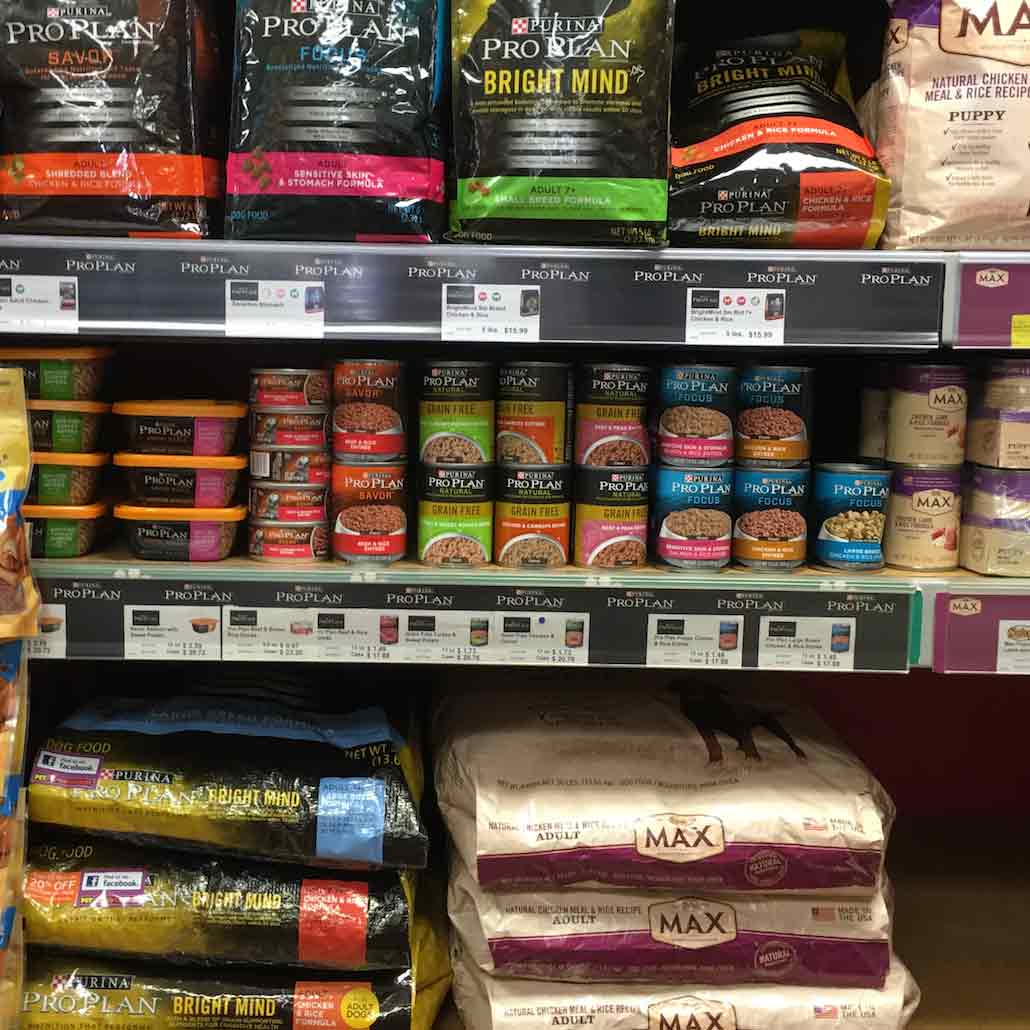
Before we dive in to our five questions, I want to welcome back our most favorite vet in the whole wide world, Dr. Christina Moore! Between busy schedules and moves, we haven’t had a chance to consult with her in a while. Let’s get started!
Urban Dog: How do you choose dog food? What’s the first step in considering what type of food you should get for you pup?
Dr. Moore: Absolutely talk to your veterinarian about what type of food you should get for your dog, not the guy on the food aisle at your local pet store like PetSmart or PetCo. The only training they’re going to get is from the pet food companies who have food on their shelves that they want to sell. They don’t really know about the science behind the diet that is best for your pet.
If you have a perfectly healthy pet, then your vet may have you just buy a high quality brand. And that’s fine. In that case you want to consider pet foods that are “highly researched.” Some companies do a ton of research on their food to make sure they do what they say they do and also that they don’t have side effects.
Some of those “highly researched” companies are Royal Canin or Hills. Purina has some brands that are also highly researched. But keep in mind that some brands on the lower end do not. Talking to your vet about food is especially important if your pet has any disease process going on. If they have kidney disease or heart disease, there are things in a diet that might need to be avoided. Or things that your pet might have a special need for in their diet.
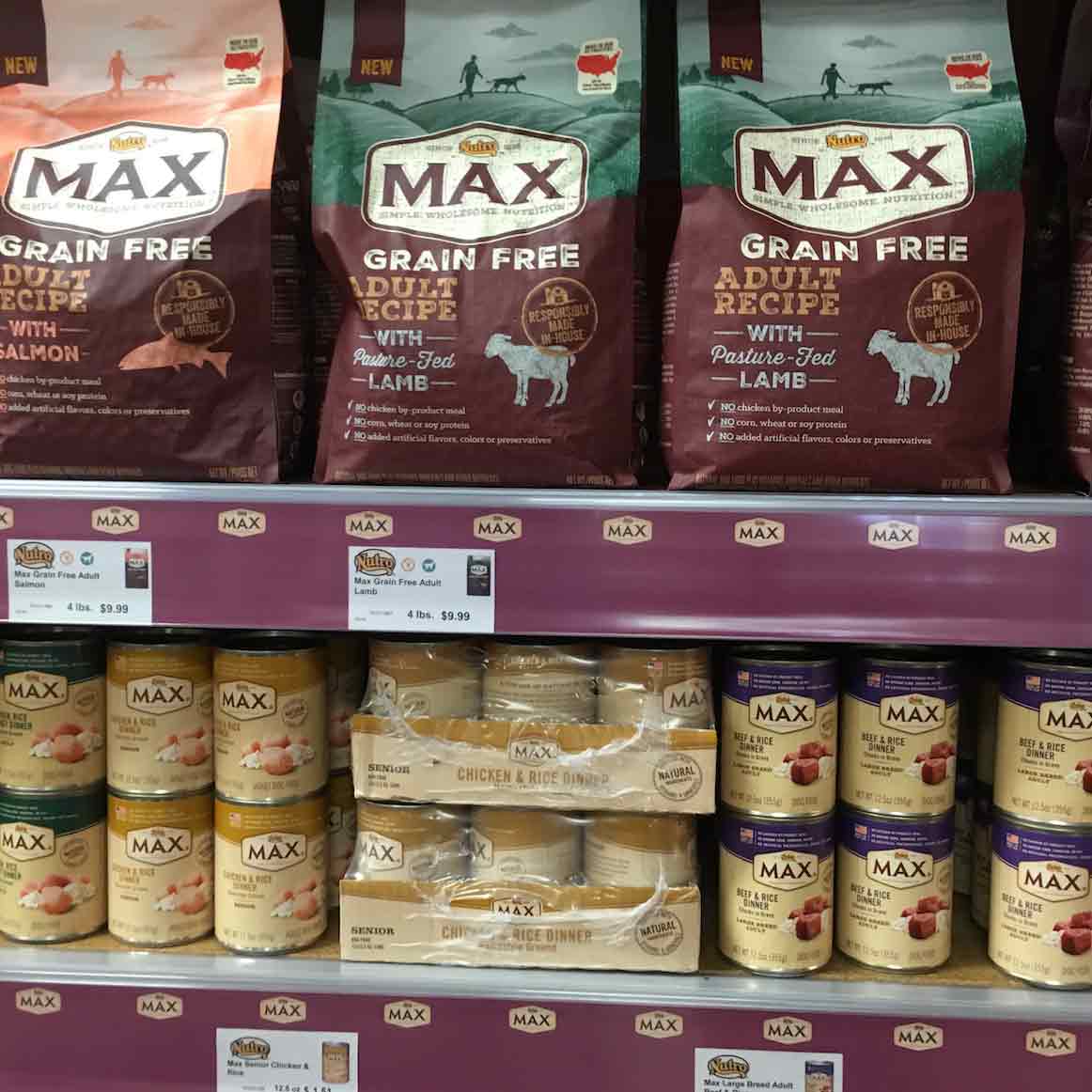
Urban Dog: How do you read dog food labels?
Dr. Moore: You have to keep in mind two things: the difference between ingredients and nutrients. Ingredients are the things in the food that provide nutrients to your pet. For example, lamb is the ingredient providing nutrients like protein and fat and vitamins. Understanding the difference is important because both are listed on the label. There are also maximum and minimum levels of nutrients that are required and the label will tell you how well the food meets those levels.
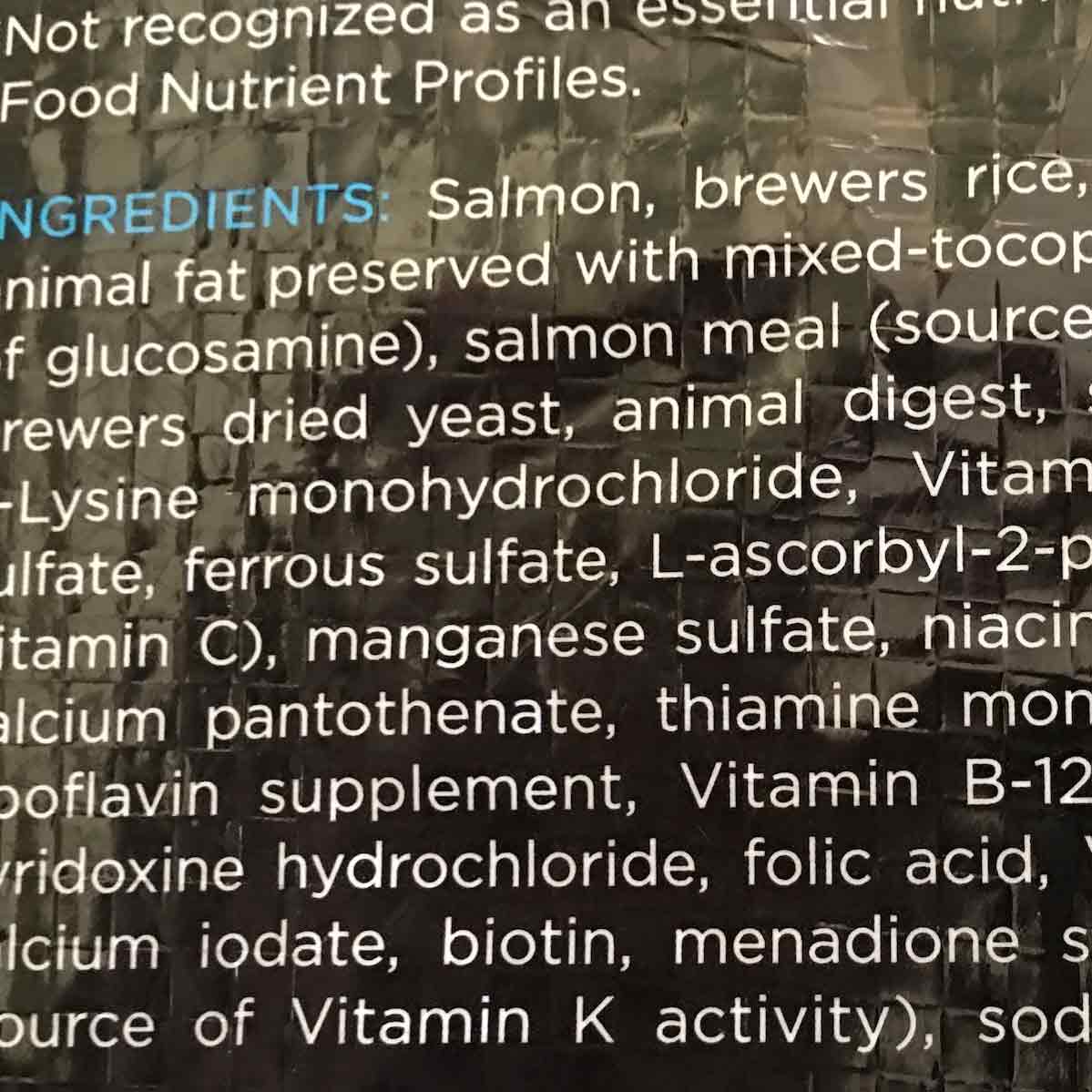
There is an AAFCO statement you should look for. AAFCO is the Association of American Feed Control Officials, which is a group that sets the nutritional standards for pet food. It is not quite the same as the FDA for food for humans; the FDA doesn’t regulate pet food the way it does human food. But at the bare minimum you should look for that AAFCO statement because it verifies that there was a certain testing method used to determine the nutritional adequacy of the pet food in question.
One of the most important things you should look for is whether the food supports “all life stages.” It may sound to you that that’s great! “This food will support my dog throughout its whole life!” But really what that means is that the food is going to have the amount of protein and calcium needed for the growth of a puppy or a kitten, but it’s got too much for an adult or a senior. Dog food that supports all life stages should not be fed to dogs throughout their life!
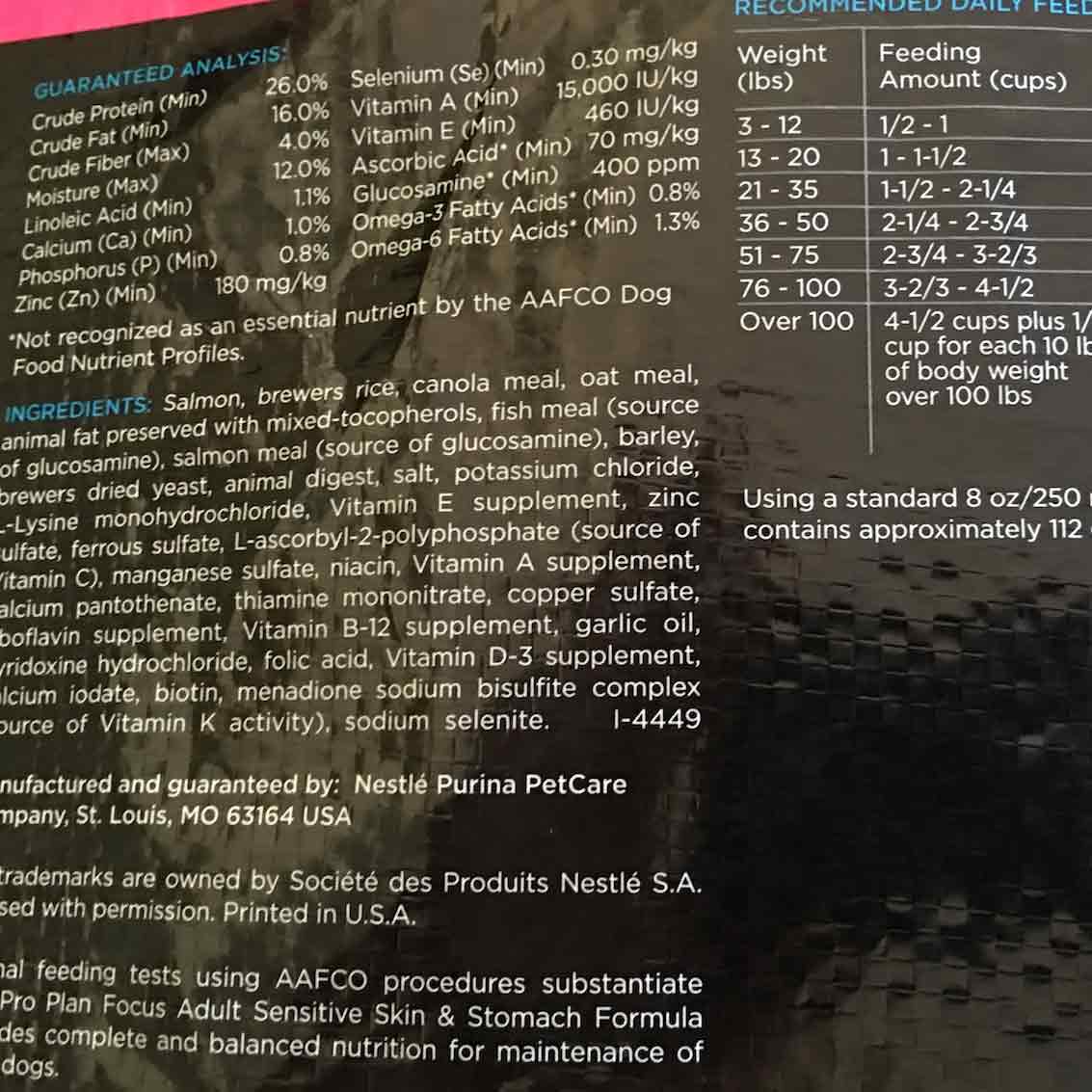
Urban Dog: What foods are bad for your dog?
Dr. Moore: Things to avoid are things that people eat. Things like avocado, coffee, chocolate, citrus, onions, grapes, chives are not great for dogs. Dairy is a big problem. Lost of people give their dogs cheese as a snack and lots of people think it’s okay to give their cats bowls of milk. Dogs and cats are not meant to drink cows’ milk. It can really mess up their stomachs and give them bad diarrhea.
Xylitol is bad. It’s a sweetener that’s found in lots of food and things like toothpaste. Dogs seems to love it and it’s really bad for them. It can cause liver failure.
Urban Dog: Dry versus wet, does it matter?
Dr. Moore: It does matter, but it is based on your pet. For example, a cat may need hydration, so wet food is better. And then there’s what you pet prefers. Some just won’t eat dry food and vice versa. But it’s not about the nutrients. And we used to say that kibble was good for teeth, but the science these days does not support that unless it’s specifically a dental diet.
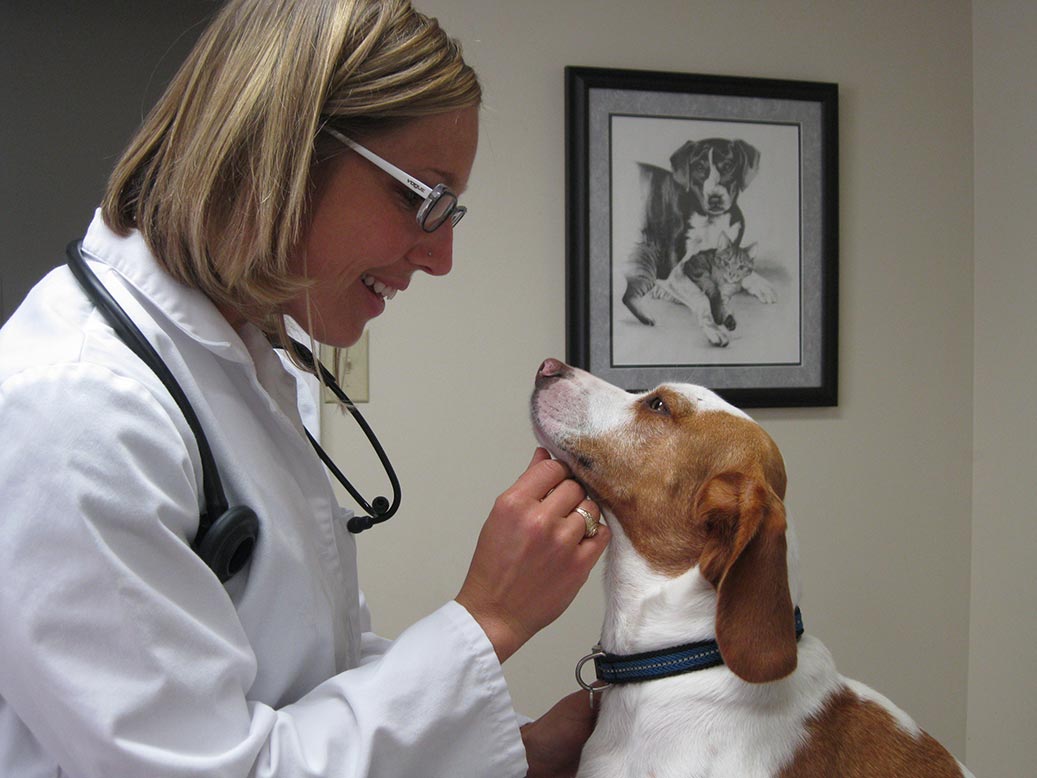
Urban Dog: Human food, yes or no?
Dr. Moore: I would say that unless you are working with a veterinary nutrionist to ensure that the human food you are making is a balanced diet and has all the nutrients that your pet needs, then no, you shouldn’t be preparing human food for your pet.
Little treats here and there are okay if they are vegetables or lean meats, but otherwise no human food for pets.
Here are some links for you to read more about dog food and feeding your dog. This is a good link for reading pet food labels. Click here to read about pet food recalls. And this is a good resource to read about toxins to avoid.






